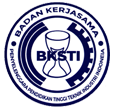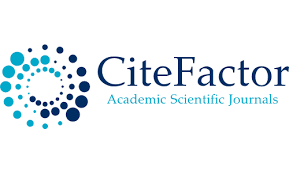Evaluation of Business Feasibility of Construction and Building Services Business at CV. Nirwatama
Abstract
Keywords
Full Text:
PDFReferences
Chakraborty, D., & Biswas, W. (2020). Articulating the value of human resource planning (HIDR) activities in augmenting organizational performance toward a sustained competitive firm. Journal of Asia Business Studies, 14(1), 62-90. https://doi.org/10.1108/JABS-01-2019-0025
Dattée, B., Alexy, O., & Autio, E. (2018). Maneuvering in poor visibility: How firms play the ecosystem game when uncertainty is high. Academy of Management Journal, 61(2), 466-498. https://doi.org/10.5465/amj.2015.0869
Gafli, G. F. M., & Daryanto, W. M. (2019). Decision making on project feasibility using capital budgeting model and sensitivity analysis. case study: Development solar PV power plant project. International Journal of Business, Economics and Law, 19(1), 50-58.
Jia, M., Komeily, A., Wang, Y., & Srinivasan, R. S. (2019). Adopting Internet of Things for the development of smart buildings: A review of enabling technologies and applications. Automation in Construction, 101, 111-126.https://doi.org/10.1016/j.autcon.2019.01.023
Kerzner, H. (2019). Using the project management maturity model: strategic planning for project management. John Wiley & Sons. DOI:10.1002/9781119559078
Lau, W. W., Shiran, Y., Bailey, R. M., Cook, E., Stuchtey, M. R., Koskella, J., ... & Palardy, J. E. (2020). Evaluating scenarios toward zero plastic pollution. Science, 369(6510), 1455-1461. DOI: 10.1126/science.aba9475
Malm, C., Jakobsson, J., & Isaksson, A. (2019). Physical activity and sports—real health benefits: a review with insight into the public health of Sweden. Sports, 7(5), 127. DOI: 10.3390/sports7050127
Mulang, H. (2021). The effect of competences, work motivation, learning environment on human resource performance. Golden Ratio of Human Resource Management, 1(2), 84-93. DOI:10.52970/grhrm.v1i2.52
Nagy, J., Oláh, J., Erdei, E., Máté, D., & Popp, J. (2018). The role and impact of Industry 4.0 and the internet of things on the business strategy of the value chain—the case of Hungary. Sustainability, 10(10), 3491.
Nedumaran, D. G. (2020). Green marketing on customer behaviour towards usage of green products. https://doi.org/10.3390/su10103491
Piranda, D. R., Sinaga, D. Z., & Putri, E. E. (2022). Online Marketing Strategy In Facebook Marketplace As A Digital Marketing Tool. JOURNAL OF HUMANITIES, SOCIAL SCIENCES AND BUSINESS, 1(3), 1-8. DOI:10.55047/jhssb.v1i2.123
Rapaccini, M., Saccani, N., Kowalkowski, C., Paiola, M., & Adrodegari, F. (2020). Navigating disruptive crises through service-led growth: The impact of COVID-19 on Italian manufacturing firms. Industrial Marketing Management, 88, 225-237. https://doi.org/10.1016/j.indmarman.2020.05.017
Razkenari, M., Fenner, A., Shojaei, A., Hakim, H., & Kibert, C. (2020). Perceptions of offsite construction in the United States: An investigation of current practices. Journal of building engineering, 29, 101138.https://doi.org/10.1016/j.jobe.2019.101138
Reinkemeyer, L. (2020). Process mining in action. Process Mining in Action Principles, Use Cases and Outloook.
Rudawska, E. (2018). From sustainable market orientation to sustainability marketing. In The sustainable marketing concept in European SMEs: Insights from the food & drink industry (pp. 53-79). Emerald Publishing Limited. https://doi.org/10.1108/978-1-78754-038-520180004
Saniuk, S., Grabowska, S., & Straka, M. (2022). Identification of social and economic expectations: Contextual reasons for the transformation process of Industry 4.0 into the Industry 5.0 concept. Sustainability, 14(3), 1391. https://doi.org/10.3390/su14031391
Settembre-Blundo, D., González-Sánchez, R., Medina-Salgado, S., & García-Muiña, F. E. (2021). Flexibility and resilience in coIDRorate decision making: a new sustainability-based risk management system in uncertain times. Global Journal of Flexible Systems Management, 22(Suppl 2), 107-132. https://doi.org/10.1007/40171-021-00277-7
Sup, D. F. A. (2021). The State's Efforts in Preserving the Environment Through Regulation. Sustainability: Theory, Practice and Policy, 1(2), 200-214.
Wilton, N. (2019). An introduction to human resource management. An Introduction to Human Resource Management, 1-632.
Zamani, E. D., & Giaglis, G. M. (2018). With a little help from the miners: distributed ledger technology and market disintermediation. Industrial Management & Data Systems, 118(3), 637-652. https://doi.org/10.1108/IMDS-05-2017-0231
DOI: http://dx.doi.org/10.22441/ijiem.v4i3.21579
Refbacks
- There are currently no refbacks.

This work is licensed under a Creative Commons Attribution-NonCommercial 4.0 International License.
IJIEM - Indonesian Journal of Industrial Engineering & Management
Program Pascasarjana Magister Teknik Industri Universitas Mercu Buana
Kampus Menteng - Gedung Tedja Buana, Floor 4th
Jl. Menteng Raya No. 29 Jakarta Pusat- Indonesia
Tlp.: +62 21 31935454 Fax: +62 21 31934474
http://publikasi.mercubuana.ac.id/index.php/ijiem
Email: [email protected]

This work is licensed under a Creative Commons Attribution-NonCommercial 4.0 International License.
The journal is indexed by:





1.png)
.png)
.png)
.png)







